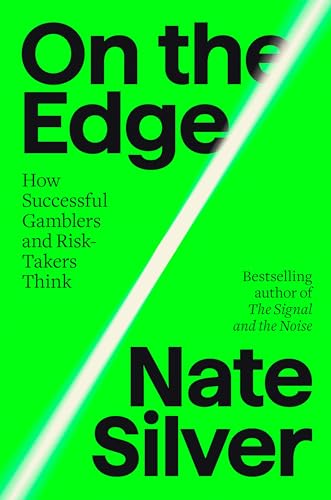Snippets about: Economics
Scroll left and right !
Exploiting The Rating Agencies' Flawed Models
To maximize profits, lenders and investment banks exploited flaws in the rating agency models:
- Using "thin-file" FICO scores from borrowers with limited credit history
- Focusing on floating-rate loans the agencies favored vs fixed-rate
- Offsetting high-risk loans with safer ones to game the averages
This allowed them to get high ratings on subprime mortgage bonds and CDOs that were far riskier than they appeared. Wall Street insiders knew the game, but the rating agencies were oblivious.
Section: 1, Chapter: 1
Book: The Big Short
Author: Michael Lewis
Wright's Law: Why Building More Makes Technology Cheaper
In the 1930s, American engineer Theodore Wright observed a remarkable pattern: for every quadrupling of aircraft production, unit costs fell by about one-third. This relationship, now called Wright's Law, explains why technologies often become dramatically cheaper as we build more of them.
Wright's Law reveals that innovation is embedded in the act of making. As we manufacture more of something, we discover efficiencies, solve problems, and develop better techniques. This virtuous cycle of building and learning explains the cost declines in everything from Model T automobiles to computer chips to solar panels.
China's solar revolution exemplifies Wright's Law. Drawing from expertise in making cheap textiles and shoes, Chinese firms gradually learned how to produce solar panels more efficiently. They developed better methods for cutting silicon wafers, automated production lines, and scaled up successful approaches. The result: solar panel costs fell by 90% in fifteen years, making clean energy economically competitive with fossil fuels for the first time.
Section: 1, Chapter: 5
Book: Abundance
Author: Ezra Klein, Derek Thompson
The Tipping Point Approaches
By mid-2007, the subprime market was starting to crack but most refused to acknowledge it. Insiders like Burry and Lippmann saw clear signs of trouble - soaring default rates, plunging bond prices, massive sell orders from big firms. But in classic "boiling frog" fashion, the system was slow to react. The true believers wrote it off as a blip, clinging to the notion that "housing prices only go up." The naysayers like Burry and Eisman used the calm to double down on their bets, knowing the day of reckoning drew near.
Section: 1, Chapter: 6
Book: The Big Short
Author: Michael Lewis
Key Elements Of The Chinese Political And Economic System
Some of the distinctive features of China's governance model and economic strategy:
- China's political system utilizes a merit-based civil service. Provincial and local officials are held accountable for meeting economic and social targets.
- Confucian values like social harmony, deference to authority, and the primacy of the collective over the individual continue to shape Chinese politics and society. This contrasts with the individualism prized in the West.
- In the economic realm, China has adopted a hybrid model blending market-based incentives and competition with strong state direction over key industries and the financial system. Capitalism subordinated to Communist Party control.
- China's leadership takes a long-term view of its development, with grand plans like the Belt and Road Initiative aiming to extend its economic reach across Eurasia. It has also focused heavily on boosting its technological capabilities to avoid dependence on the West.
Section: 2, Chapter: 12
Book: Principles For Dealing With the Changing World Order
Author: Ray Dalio
The Economics Of TB Treatment
Analyses of cost-effectiveness often only run skin deep. When looking at the larger costs—the cost of the ineffective pills, the cost of potentially further spreading drug-resistant TB, the cost of hospitalizing a kid who should've been in school, and all the other costs of not getting kids access to proper testing—GeneXpert tests should be in every clinic in every country with a high burden of TB.
From that perspective, investing in tuberculosis diagnosis and treatment begins to look like one of the best bets in global health. A 2024 study commissioned by the WHO found that every dollar spent on tuberculosis care generates around thirty-nine dollars in benefit by reducing the number (and expense) of future TB cases, and through more people being able to work rather than being chronically ill or caring for their chronically ill loved ones.
Section: 4, Chapter: 15
Book: Everything is Tuberculosis
Author: John Green
Science In Corporate Captivity
Corporate investments in AI jumped from $14.6 billion in 2013 to $235 billion in 2022, while US government allocated just $1.5 billion to non-defense AI. This funding shift fundamentally altered AI research priorities around commercial rather than scientific merit.
From 2004 to 2020, AI PhD graduates heading to corporations jumped from 21% to 70%. Universities could no longer afford the compute needed for cutting-edge research. By 2020, 91% of the world's best-performing AI models came from industry. The result: AI development now serves profit motives rather than scientific advancement or public benefit.
Section: 2, Chapter: 7
Book: Empire of AI
Author: Karen Hao
Recognizing The Flaws In Market-Based Climate Solutions
When evaluating proposed climate solutions, be skeptical of approaches that:
- Rely primarily on market mechanisms like carbon trading rather than firm limits on pollution
- Fail to hold fossil fuel companies legally and financially accountable for their emissions
- Assume we can continue burning fossil fuels indefinitely as long as they're offset elsewhere
- Disproportionately impact poor and vulnerable communities while benefiting corporations
The climate crisis requires transparent, accessible solutions that put people and the planet ahead of profit and empower communities to take control of their energy and economic futures. Reject anything less.
Section: 2, Chapter: 7
Book: This Changes Everything
Author: Naomi Klein
The Great Forecasting Disaster
Predicting iPhone demand in China proved impossible using traditional metrics. One Apple executive estimated room full of cash worth 'a billion dollars' backing the gray market resellers. Post office workers spent 30% of their annual salary on iPhones for status.
Traditional economic models broke down completely. Apple's analysts would double their projections annually, cross their fingers, then discover they'd still been far too conservative. 'It was pulling numbers out of your ass—no matter what you did,' admitted one forecaster. The unpredictability wasn't a bug—it was a feature of China's rapid transformation.
Section: 4, Chapter: 22
Book: Apple in China
Author: Patrick McGee
The Long-Term Debt Cycle Follows A Predictable Pattern
Long-term debt cycles, lasting 50-100 years on average, follow a predictable pattern:
- They begin with little debt and "hard money" like gold.
- Credit expands through claims on hard money.
- Debt levels rise as lending and borrowing increase.
- Debt crises emerge as debts exceed the ability to repay. Hard money constraints are abandoned in favor of fiat money.
- Fiat money is printed excessively, leading to the devaluation of money.
- Eventually a return to hard money occurs to restore confidence.
This cycle has repeated throughout history, from Ancient Rome to Medieval China to 20th century Europe and America. While new financial instruments emerge, the underlying dynamics persist because of the universal human tendency towards credit expansions and contractions.
Section: 1, Chapter: 3
Book: Principles For Dealing With the Changing World Order
Author: Ray Dalio
The Signal And The Noise In Economic Data
One framework for thinking about the challenges in economic forecasting is the "signal and noise" concept. The "signal" is the true information content of economic data - the underlying trends and causal relationships we're trying to tease out. The "noise" is the random fluctuations, measurement errors, and irrelevant factors that obscure the signal.
In economic data, the noise often drowns out the signal. A few examples:
- GDP growth figures are routinely revised by multiple percentage points as new data comes in. The initial estimates are so noisy as to be nearly useless for real-time forecasting.
- Apparent patterns in things like yield curves, stock prices, or commodity prices often turn out to be random noise rather than genuine predictive signals. Statistical flukes get mistaken for meaningful economic omens.
- Economic models are built on past data that is assumed to be a fair representation of the future. But the economy's structure is constantly shifting in subtle ways. Yesterday's signal can become today's noise.
Section: 1, Chapter: 6
Book: The Signal and the Noise
Author: Nate Silver
Toward A Better Economic Forecasting Paradigm
Given the poor track record of economic forecasting to date, what would a more effective approach look like? A few key principles emerge:
- Embrace uncertainty. Rather than point forecasts, strive to quantify and communicate the full range of possible outcomes. Use probabilistic language and be explicit about your confidence level in different predictions.
- Use diverse models. Don't put all your faith in one model or method. Compare results from multiple independent approaches and be suspicious when they diverge. Use "ensemble methods" that synthesize insights from many models.
- Think in scenarios. Instead of focusing on a single "base case", map out multiple alternative futures. What has to happen for optimistic and pessimistic scenarios to play out? Which scenarios are most sensitive to your assumptions?
- Continuously update. As new data arrives, be ready to change your mind and revise your predictions. Don't get wedded to past positions. Follow the evidence where it leads, even if it's uncomfortable.
- Reward accuracy. Create incentives and accountability for forecasting precision. Keep scorecards of your prediction track record. Seek out accuracy-focused signals like prediction markets rather than just the consensus view.
Section: 1, Chapter: 3
Book: The Signal and the Noise
Author: Nate Silver
The Apple Squeeze Explained
Apple's competitive advantage stemmed from a unique deal with Chinese suppliers called 'The Apple Squeeze':
The Exchange:
- Apple provides world-class engineering training and expensive machinery
- Suppliers work for 'soul-crushingly low margins'
- Suppliers gain skills to charge other clients much higher rates
While iPhone margins reached 33%, Chinese competitors earned 7%, 6%, and 2% respectively. Apple didn't pay suppliers much, but the experience was invaluable. This model enabled Apple to maintain industry-leading profits while suppliers built capabilities that transformed China's electronics sector.
Section: 5, Chapter: 30
Book: Apple in China
Author: Patrick McGee
The Great Treasure Hunt Begins
By early 2007, the subprime mortgage market was starting to crack, but few wanted to acknowledge it. The maverick investors who had bet against it - Burry, Eisman, Ledley & Mai - were seen as Chicken Littles. But they knew they were onto something big. The trick was finding ways to profit from their insight. They embarked on a mad scramble to load up on credit default swaps, short positions, and other contrarian bets before it was too late. It was a treasure hunt where the treasure was hidden in plain sight.
Section: 1, Chapter: 7
Book: The Big Short
Author: Michael Lewis
Are Monkeys More Rational Than Humans?
In the epilogue, Levitt and Dubner describe a provocative experiment by Yale economist Keith Chen. Chen taught capuchin monkeys to use money, then observed their economic behavior. Remarkably, the capuchins exhibited many of the same biases and irrationalities as humans:
- The monkeys responded to price changes, buying less of a food when its price rose
- They fell for the "sunk cost fallacy," eating more of a food they paid more for
- Like humans, the monkeys were loss-averse, strongly preferring gambles framed as bonuses vs. deductions
Levitt and Dubner argue the capuchin experiments hold a mirror up to human nature. If even monkeys exhibit economic biases, it suggests they may be more deeply hardwired than we'd like to admit. The authors believe acknowledging the limits of human rationality is a first step to devising policies and incentives that account for it. Rather than expecting people to act like Econs, they suggest we design systems that anticipate predictably irrational actors.
Section: 1, Chapter: 6
Book: Super Freakonomics
Author: Steven D. Levitt , Stephen J. Dubner
Wealth And Values Gaps Drive Internal Conflicts Within Countries
All societies have internal struggles between different socioeconomic classes over wealth and power. These conflicts intensify when there are large gaps in wealth and fundamental values between the classes. Wealth gaps naturally emerge in capitalist systems, as some benefit more from productivity gains than others.
Values gaps emerge as people coalesce into "tribes" based on factors like religion, ethnicity, urban/rural status, and politics. When a country experiences economic hardships on top of these gaps, it often leads to a breaking point of revolution and/or civil war to restructure the internal order. Managing these internal gaps is essential for countries to maintain stability and avoid self-destructive conflicts.
Section: 1, Chapter: 5
Book: Principles For Dealing With the Changing World Order
Author: Ray Dalio
The Exploitation Playbook
Scale AI perfected the crisis capitalism model for data annotation. When Venezuela's economy collapsed with 10 million percent hyperinflation, Scale aggressively recruited desperate Venezuelans with promises of good wages through 'Remotasks Plus.' Once dominant, Scale slashed pay from $40/week to under $6/week.
The playbook: Target countries in economic crisis with educated populations and good internet. Promise high earnings to attract workers. Once established, throttle earnings through 'optimization.' When workers complain or organize, ban them and move to the next crisis zone. This pattern repeated across Kenya, North Africa, and other vulnerable regions.
Section: 2, Chapter: 9
Book: Empire of AI
Author: Karen Hao
Want To Prevent Terrorism? Make Them Buy Life Insurance
Based on an analysis of data on captured terrorists and would-be terrorists, Levitt and Dubner identify some common traits. Compared to the average person, terrorists are more likely to:
- Rent rather than own a home (due to not expecting to live long)
- Not have a life insurance policy (since it doesn't pay out for suicides)
- Make purchases in cash rather than credit/checks (to avoid paper trail)
- Have multiple ATM withdrawals of just under $3000 (to evade mandatory reporting limits)
The authors propose that banks and insurance companies could potentially use these insights to identify individuals at high risk of committing terrorist acts based on their financial and personal records. Of course, such profiling raises major privacy concerns and could ensnare some innocent people exhibiting these same behaviors. But in theory, companies and law enforcement could leverage this data to proactively intervene with would-be terrorists.
Section: 1, Chapter: 2
Book: Super Freakonomics
Author: Steven D. Levitt , Stephen J. Dubner
Why Housing Became a Crisis in the 1970s
The 1970s marked a dramatic shift in how Americans viewed housing. Before this period, housing wasn't considered a prime asset - you simply bought a home to live in it. But several factors converged to change this fundamentally.
Inflation made 30-year fixed-rate mortgages incredibly valuable, as the real value of payments decreased while home values rose. From 1955 to 1970, owner-occupied housing held steady at about 21% of total household net wealth. Between 1970 and 1979, it jumped to 30%.
As homes became central to Americans' wealth, homeowners became increasingly motivated to protect and enhance their property values. The most effective way to do this was through restrictive zoning laws that limited new construction, creating artificial scarcity that drove up prices.
Section: 1, Chapter: 1
Book: Abundance
Author: Ezra Klein, Derek Thompson
The Dragon In A Three-Piece Suit
Doug Guthrie's expertise in Chinese economic sociology proved crucial for Apple's political awakening. His key insight: China wasn't becoming Western despite appearances—it was mimicking Western practices while maintaining authoritarian control.
Western academics assumed economic reforms would lead to political liberalization. Guthrie recognized China's system was maturing into something novel—a hybrid that could outcompete capitalist rivals while maintaining Communist Party supremacy. His warning that 'voluntary is the new mandatory' captured how Xi weaponized regulation to control foreign corporations.
Section: 5, Chapter: 28
Book: Apple in China
Author: Patrick McGee
The Venezuela Gold Rush
As Venezuela's economy collapsed with hyperinflation reaching 10 million percent, hundreds of thousands turned to data annotation platforms for survival. Scale AI and others discovered a 'freak coincidence' - educated populations in crisis would work for astonishingly low wages.
Oskarina Fuentes, a Venezuelan refugee and engineering graduate, epitomizes this hidden workforce. Working on Appen, she earned pennies per task, stopped leaving home except for 30-minute weekend outings, and slept with her computer at maximum volume to catch middle-of-night tasks. The cruel irony: She needed $10 minimum to withdraw earnings, sometimes taking weeks to accumulate that much.
Section: 2, Chapter: 9
Book: Empire of AI
Author: Karen Hao
The Origins Of East-West Economic Ties In Europe
In the late 1960s, Austrian and West German capitalists met with Soviet communists to discuss building gas pipelines from the communist East to capitalist West. West German Foreign Minister Willy Brandt believed deeper economic ties would make future military conflict unthinkable and promoted "change through rapprochement" (Wandel durch Annäherung).
Not everyone agreed. U.S. presidents Nixon, Carter and Reagan worried the pipelines would enrich the Soviets, increase European energy dependence on Moscow, and empower the regime the West was supposed to be countering. But Brandt's policy largely prevailed, morphing into "change through trade" (Wandel durch Handel) after the Cold War.
Section: 1, Chapter: 1
Book: Autocracy, Inc
Author: Anne Applebaum
The Weight Of History
It is common to say that Sierra Leone is a poor country, but this is not the case. It is an exceptionally rich country with vast wealth in metal ores and especially in diamonds, which during centuries of colonialism encrusted many a British crown. After achieving independence in 1961, the new government struggled to transition away from this extraction-based economy.
The Sierra Leonean physician Dr. Bailor Barrie once told me, "If you want to understand why Sierra Leone is poor, you must look at a map of our railroads." The railroads, built during colonial rule, did not connect people to each other. They connected the mineral-rich areas of Sierra Leone to the coast, where those minerals could be exported. The empire's role in Sierra Leone was primarily to take Sierra Leone's wealth, as quickly and efficiently as possible, out of Sierra Leone.
Section: 1, Chapter: 3
Book: Everything is Tuberculosis
Author: John Green
The Subprime Machine Goes Into Overdrive
From 2005-2007, subprime lending exploded as Wall Street figured out how to game the system. With investors clamoring for higher-yielding bonds, lenders lowered standards, rating agencies blessed risky loans, and investment banks packaged them into complex securities. The fees were so lucrative that everyone from mortgage brokers to CDO managers was incentivized to keep the machine humming, no matter how risky the loans. Few questioned whether it was sustainable - they were too busy getting rich.
Section: 1, Chapter: 4
Book: The Big Short
Author: Michael Lewis
How The Dutch Empire Rose To Preeminence
Chapter 9 traces the rise of the Dutch Empire in the 17th century:
- The Dutch successfully revolted against Spain in the 80 Years' War, asserting independence in 1581. This allowed them to create a more open, inventive society.
- The Dutch pioneered key innovations like joint-stock companies, stock markets, and central banking that provided fuel for commerce and expansion. The Dutch East India Company became the world's first mega-corporation.
- The Dutch had strong education, a culture emphasizing saving and hard work, and invested in their military to protect trade routes. Amsterdam became the world's financial center and the Dutch guilder emerged as the first reserve currency.
- At their peak around 1650, the Dutch had the highest incomes in Europe and dominated world trade.
Section: 2, Chapter: 9
Book: Principles For Dealing With the Changing World Order
Author: Ray Dalio
Betting Against The Housing Bubble
Ways to bet against the housing market before the crash:
- Shorting stocks of subprime lenders and homebuilders
- Buying credit default swaps on subprime mortgage bonds
- Buying puts or shorting subprime mortgage bond indices
The key was spotting the bubble early and finding asymmetric ways to bet against it with limited downside risk. This allowed investors like Eisman and Burry to make huge profits when it popped.
Section: 1, Chapter: 3
Book: The Big Short
Author: Michael Lewis
Capitalism's Incompatibility With Motherhood
Reproduction under late-stage capitalism creates impossible conditions for parents:
- 25% of American mothers return to work within two weeks of giving birth
- Rising housing costs force both parents to work full-time
- Paternity leave remains minimal or nonexistent in many countries
- Mothers face hiring discrimination and lower salaries
- Women's careers are interrupted while men often take extra jobs
- 4.3 million UK children live in poverty, with rates highest among single-parent and minority ethnic families
- Workplaces remain inflexible to caregiving responsibilities
This system prioritizes economic productivity over family wellbeing, creating what researchers call the 'parenting happiness gap'—evidence that parents have lower happiness levels compared to non-parents in industrialized societies, with the largest gap in the United States.
Section: 5, Chapter: 12
Book: Matrescence
Author: Lucy Jones
The Stock Market Is Like Keynes's Beauty Contest
John Maynard Keynes likened the stock market to a newspaper beauty contest in which readers try to pick the most popular faces among other readers, leading to an infinite regress of anticipating what others believe average opinion will be.
Similarly, investors don't just evaluate stocks based on fundamentals. They also try to anticipate other investors' valuations, which leads to self-reinforcing bubbles and crashes. The result is a market driven by "animal spirits" and herd behavior rather than rational analysis.
As Keynes wrote: "The actual, private object of the most skilled investment today is...to outwit the crowd, and to pass the bad, or depreciating, half-crown to the other fellow...this battle of wits to anticipate the basis of conventional valuation a few months hence, rather than the prospective yield of an investment over a long term of years, does not even require gulls amongst the public to feed the maws of the professional; - it can be played by professionals amongst themselves."
The implication is that stock prices can diverge significantly from fundamental values, and that making money in markets requires anticipating these swings in sentiment. This view contradicts the efficient market hypothesis but accords with behavioral finance and the reality of market booms and busts.
Section: 5, Chapter: 21
Book: Misbehaving
Author: Richard Thaler
The Triumph Of Free Market Ideology Fatally Undermined Climate Action
The dominant ideological trend of the last several decades - the global triumph of free market fundamentalism (often called neoliberalism) - occurred at the very worst time from a climate perspective. Just when governments needed to intervene decisively to restructure economies away from fossil fuels, they were instead ceding more and more power to the market.
Key pillars of the free market revolution like privatization, deregulation, and corporate free trade deals acted at cross-purposes with the need for government planning to tackle emissions. Fossil fuel companies gained the freedom to pursue ever-riskier sources of carbon such as fracking. Instead of public ownership and planning for a clean energy transition, the energy sector was privatized and deregulated.
Section: 1, Chapter: 2
Book: This Changes Everything
Author: Naomi Klein
The Cycle Of Consumption
One of the pillars of the modern economy is the idea that more is always better. We are told to work hard, earn money, and translate that wealth into an ever-rising standard of living. This mentality is a radical break from most of human history, where the majority lived on the edge of subsistence.
So what changed? In a word: culture. Starting in the 18th century, new ideologies emerged that placed consumption at the center of the good life:
- Liberal thinkers argued that pursuing luxury was a productive economic activity
- Pop culture glorified the lifestyles of the rich and famous as aspirational ideals
But as we reach the limits of the planet's resources, as widening inequalities breed resentment, and as more consumption fails to yield more well-being, this core tenet of the modern worldview is starting to fray.
Section: 2, Chapter: 6
Book: Homo Deus
Author: Yuval Noah Harari
The Incoherence Of "Market-Based" Climate Solutions
"Policies that simply try to harness the power of the market—by minimally taxing or capping carbon and then getting out of the way—won't be enough. If we are to rise to a challenge that involves altering the very foundation of our economy, we will need every policy tool in the democratic arsenal."
Section: 1, Chapter: 4
Book: This Changes Everything
Author: Naomi Klein
Race To The Bottom
OpenAI's scaling doctrine triggered an industry-wide arms race. After ChatGPT, Meta announced plans for 350,000 H100 GPUs. Google consolidated its AI divisions. Chinese companies suspended drug discovery research to build chatbots. The competition became so fierce that Microsoft laid off 10,000 workers while investing $10 billion in OpenAI.
This 'hardware overhang' created the exact competitive dynamics OpenAI originally warned against. Companies now spend astronomical sums with 'little to show for it' according to Goldman Sachs. Meanwhile, 77% of workers using AI tools report they add to rather than reduce workload.
Section: 3, Chapter: 11
Book: Empire of AI
Author: Karen Hao
Knightian Uncertainty Versus Risk
The economist Frank Knight distinguished between two types of unknowns:
- Risk refers to situations where the range of possible outcomes is known, and their probabilities can be estimated (e.g., rolling a six-sided die).
- Uncertainty (or "Knightian uncertainty") refers to situations where the possible outcomes and their likelihoods are both unknown and unknowable (e.g., the impact of a fundamentally new technology).
In an increasingly complex, rapidly changing world, more of our key challenges fall into the domain of uncertainty rather than risk. Treating uncertain situations as if they were merely risky - attempting to estimate probabilities and outcomes based on past data - can lead to dangerous miscalculations and fragility. Recognizing the limits of probabilistic reasoning in the face of radical uncertainty is essential for navigating the modern age.
Section: 1, Chapter: 6
Book: Fluke
Author: Brian Klaas
The Power Of Incentives
The introduction provides a preview of some of the controversial topics the book will explore, including:
- How sumo wrestlers sometimes throw matches for financial gain
- How some teachers cheat on standardized tests to improve their school's ranking
- How a street crack gang operates similarly to a McDonald's franchise
- How the infamous Ku Klux Klan operates similarly to a group of real estate agents
The common thread is that incentives drive behavior, sometimes in unexpected ways. The tools of economics can shine a light on hidden truths when applied correctly.
Section: 1, Chapter: 1
Book: Freakonomics
Author: Steven D. Levitt, Stephen J. Dubner
Bias And Incentive Problems In Economic Forecasting
Economic forecasts also suffer from bias and misaligned incentives. Even when forecasters have access to the same data, their predictions are often skewed by unconscious biases and career pressures.
One common bias is overconfidence. Forecasters (and their clients) often put too much faith in complex econometric models, ignoring the uncertainties in their assumptions and the economy's inherent unpredictability. Many forecasts are presented as precise point estimates rather than ranges, creating a false sense of certainty.
Incentives also play a role. In a famous experiment, Harvard undergrads were divided into "buyers" and "sellers" of a hypothetical asset. The catch was that sellers were given a token reward if the asset price stayed high. This small incentive was enough to make sellers significantly more bullish in their price predictions vs buyers. The same dynamic plays out in the real economy - analysts affiliated with financial firms tend to make rosier GDP forecasts than independent academics.
Section: 1, Chapter: 6
Book: The Signal and the Noise
Author: Nate Silver
The Secret Origin Of The Subprime Mortgage Crisis
In the early 2000s, Steve Eisman, an equity analyst covering consumer finance companies, started noticing troubling trends in the subprime mortgage industry. Lenders like Household Finance were making increasingly risky loans to lower-income borrowers. With the help of his analyst Vinny Daniel, Eisman dug into the details and realized the entire industry was a house of cards built on unsustainable lending practices. They started shorting the stocks of subprime lenders.
Section: 1, Chapter: 1
Book: The Big Short
Author: Michael Lewis
All Currencies Are Devalued Or Die Over Time
Looking back over the last few centuries, all major currencies have either been devalued significantly or died altogether. Currencies are devalued when governments print excessive amounts of money, usually to finance budget deficits or service high debt levels. This reduces the purchasing power of money over time. Many currencies have been completely replaced, often after losing a war or during a political revolution. The only major currencies that have survived since 1850 are the U.S. dollar, British pound and Swiss franc - and even they have lost over 90% of their purchasing power due to devaluations.
Section: 1, Chapter: 4
Book: Principles For Dealing With the Changing World Order
Author: Ray Dalio
Beware Overconfident Forecasts - Economists' Poor Track Record Of Predicting Recessions
One of the clearest lessons from economic history is to be deeply skeptical of overconfident economic forecasts, especially those that proclaim a "new era" of uninterrupted growth or that project present trends indefinitely into the future. Economists have a dismal record of predicting recessions and major turning points in the business cycle.
In the 2007-2008 financial crisis, for example, the median forecast from leading economists was that the economy would avoid recession and continue to grow. Even once the recession had already begun in December 2007, most economists still thought a recession was unlikely.
Part of the problem is incentives - bearish forecasts are often punished by markets and by clients who don't want to believe the party will ever end. There are also psychological biases at play, like recency bias (putting too much weight on recent events and performance) and overconfidence. Any projection that doesn't grapple with uncertainty and discuss the many ways the forecaster could be wrong is not worth very much.
Section: 1, Chapter: 2
Book: The Signal and the Noise
Author: Nate Silver
The Economic Cost of Ignoring Women's Sanitation Needs
A Yale study applied a mathematical model to calculate the cost-benefit of installing public toilets for women to reduce sexual assault in Khayelitsha, a South African township. They found that increasing the number of toilets would result in a net savings, even after accounting for installation and maintenance:
- Currently there are 5,600 toilets for 2.4 million people, and 635 sexual assaults happen per year, at a cost of $40 million
- Doubling the number of toilets would decrease sexual assaults by 30%, saving $5 million per year in medical, legal and other costs
- This is a conservative estimate that doesn't even include the many additional health benefits and increased economic participation of women when they have access to safe sanitation
Section: 1, Chapter: 2
Book: Invisible Women
Author: Caroline Criado Perez
Reproductive Labor: The Hidden Economy
The economic value of motherhood and caregiving remains systematically obscured and devalued. In 2016, the ONS found that unpaid childcare in the UK was worth £351.7 billion, with overall unpaid household service work equivalent to 63.1% of GDP—yet this work remains invisible in economic calculations.
This undervaluation serves a specific purpose: by framing care work as 'natural' satisfaction rather than labor, society can extract this value without compensation. As economist Nancy Folbre notes, this allows both men and employers to 'free ride on voluntary contributions to the production and maintenance of human capital.'
The reality is that this work forms the essential infrastructure propping up capitalism. Without workers, there is no work, making reproductive labor the largest and most necessary section of our economies.
Section: 5, Chapter: 12
Book: Matrescence
Author: Lucy Jones
Economists Assume Irrelevant Factors Don't Matter, But They Do
Standard economic theory assumes that people make rational decisions based only on relevant factors. However, behavioral economics recognizes that in the real world, many supposedly irrelevant factors (SIFs) heavily influence behavior. Examples include:
- Framing effects (e.g. 70/100 feels much worse than 96/137 even if the percentage is the same)
- Anchoring (being influenced by arbitrary reference points)
- Availability bias (judging frequency by how easily examples come to mind) SIFs make behavior deviate from what rational models predict. Identifying SIFs and how they impact decisions is a key aim of behavioral economics.
Section: 1, Chapter: 1
Book: Misbehaving
Author: Richard Thaler
The Importance Of Incentives In Subprime
Every step in the subprime mortgage machine was plagued by misaligned incentives:
- Brokers were paid for volume, not loan quality
- Banks made money from securitizing loans, not holding them
- Rating agencies were paid by banks, not investors
- Investors craved yield, didn't look under the hood
When each player is compensated based on short-term profits rather than long-term sustainability, a system is bound to collapse under its own weight. Understanding incentives is key to spotting financial folly.
Section: 1, Chapter: 4
Book: The Big Short
Author: Michael Lewis
The Challenges Of Economic Forecasting According To Jan Hatzius
Jan Hatzius, chief economist at Goldman Sachs, encapsulates the immense difficulties inherent to economic forecasting. He cites three main challenges:
- The economy is a dynamic, constantly evolving system with complex interrelationships and feedback loops that make it very difficult to determine cause and effect from economic data alone.
- The quality of economic data is often poor, with key indicators frequently revised months or years after they are first reported. GDP growth estimates, for example, have historically been revised by an average of 1.7 percentage points.
- Because the structure of the economy is always changing, past explanations for economic behavior may not hold in the future. Economists still debate whether the Great Recession marked a fundamental "regime change" in the economy.
As a result of these challenges, even the most sophisticated economic forecasting models have poor predictive records, routinely missing major turning points in the business cycle and failing to anticipate recessions.
Section: 1, Chapter: 2
Book: The Signal and the Noise
Author: Nate Silver
The Hidden Side of Everything
The introduction lays out the central theme of Freakonomics - that economic analysis, when applied correctly, can reveal surprising truths about how the world really works by studying incentives. Incentives are at the core of modern life and understanding them allows us to view the world through a new lens. The authors argue conventional wisdom is often wrong and that it takes a novel way of looking at things to uncover the real truth.
Section: 1, Chapter: 1
Book: Freakonomics
Author: Steven D. Levitt, Stephen J. Dubner
Pull Funding: A Better Way to Accelerate Innovation
When funding innovation, governments typically use 'push funding' - giving money upfront for research and development. But there's another approach called 'pull funding' that can be more effective for certain challenges.
While push funding pays for effort, pull funding pays for success. It works by promising to purchase products once they meet specified criteria. This approach solves a common barrier to innovation: demand uncertainty. Companies are often reluctant to invest in developing products if they're unsure whether there will be sufficient market demand.
One powerful form of pull funding is the Advance Market Commitment (AMC). In 2007, the Gates Foundation and several countries offered pharmaceutical companies $1.5 billion to develop pneumococcal vaccines for low-income countries. By 2020, hundreds of millions of doses had been purchased and distributed, saving approximately 700,000 lives.
This model could be applied to other urgent challenges like carbon removal technology or green cement, guaranteeing a market for effective solutions and accelerating their development.
Section: 1, Chapter: 5
Book: Abundance
Author: Ezra Klein, Derek Thompson
Prostitution Economics 101
Levitt and Dubner lay out a simple economic framework for understanding the business of prostitution:
- Supply and Demand: When demand from male customers outstrips supply of female prostitutes, prices are high. This explains why prostitutes could earn the equivalent of over $76,000/year in early 1900s Chicago.
- Substitute Goods: Competition from other women willing to have unpaid sex acts as a substitute good, eating into prostitutes' earning power. As premarital sex became more common, demand for paid sex fell.
- Pimps as Managers: Pimps provide legitimate business services (protection from police/johns, marketing, price discrimination) in exchange for a 25% cut. Prostitutes working with pimps earn more per trick.
- Price Discrimination: Pimps charge different prices to black vs white customers to maximize revenue. This first-degree price discrimination extracts more total surplus.
Section: 1, Chapter: 1
Book: Super Freakonomics
Author: Steven D. Levitt , Stephen J. Dubner
America's Housing Crisis by the Numbers
America is facing a severe housing affordability crisis. In 1950, the median home price was 2.2 times the average annual income; by 2020, it had risen to 6 times. The cost of housing has skyrocketed while wage growth has stagnated.
This crisis isn't evenly distributed. In 1950s and 1960s, California routinely built more than 200,000 homes each year. Since 2007, it has never permitted more than 150,000. The consequences are stark: California has about 12 percent of the nation's population but 30 percent of its homeless population and about 50 percent of its unsheltered homeless.
Section: 1, Chapter: 1
Book: Abundance
Author: Ezra Klein, Derek Thompson
Wealth And Power Are Gained By Producing More Than You Consume
For countries and individuals, wealth and power accumulate when production exceeds consumption. Being able to produce more valuable goods and services than you consume is what allows you to save and invest for the future. Likewise, great empires and economies emerge when they are highly productive in creating things the world wants.
The most powerful countries have the economic output and trade surpluses to finance strong militaries and global influence. When countries turn to over-consumption and under-production, running chronic deficits, it inevitably leads to a decline in relative wealth and power. Investors must watch whether countries are living within their means or borrowing excessively from the future.
Section: 1, Chapter: 6
Book: Principles For Dealing With the Changing World Order
Author: Ray Dalio
Willpower? No Problem
While modern economic theory assumes that people have perfect self-control, early economists like Adam Smith and Irving Fisher recognized the importance of willpower and the fact that people often struggle to resist short-term temptations.
Smith wrote extensively about "passion" and the need to overcome it through reason. Fisher described impatient behavior by low-income people, such as workers getting drunk after payday rather than saving.
It wasn't until the 1930s-50s that economists like Paul Samuelson, seeking to make economics more mathematically rigorous, introduced the idea that people discount the future at a constant rate and have perfect self-control. This assumption became standard in economic models, even though it contradicted many earlier thinkers' insights about the very real problem of limited willpower.
Section: 3, Chapter: 11
Book: Misbehaving
Author: Richard Thaler
Exchange Asymmetries Lead To Fewer Trades
The "mug experiments" were a series of studies designed to test the endowment effect - people's tendency to value items they own more highly than equivalent items they do not own.
In the experiments, some participants were given coffee mugs and became potential sellers, while others became potential buyers. According to standard economic theory, about 50% of the mugs should trade hands, since the mugs were allocated randomly.
However, in repeated experiments, only 10-30% of the mugs traded. Sellers' minimum acceptable price was typically about twice as high as buyers' maximum willingness to pay.
This effect persists even if participants are allowed to handle the mugs in advance or learn the market price. It appears to reflect a deep aversion to losing items we own, rather than just a lack of information. And it directly contradicts the Coase theorem, a classic economic principle which holds that in the absence of transaction costs, goods will always flow to their most valued use.
Section: 4, Chapter: 16
Book: Misbehaving
Author: Richard Thaler
The Economist's Guide To Parenting
Levitt, an economist and father of four, applies economic principles to parenting. His key insights:
- Children are expensive, so have them only if the benefits outweigh the costs
- Think on the margin - don't fret over any one decision, focus on cumulative impact
- Incentives matter - use carrots and sticks to encourage good behavior
- Comparative advantage - specialize in what you're best at vs. your spouse
- Economies of scale - the marginal cost and effort of extra children is lower
More controversially, Levitt argues parents often overestimate their own impact relative to chance and genetics. He cites twin and adoption studies suggesting parenting style has limited impact on long-term outcomes. Levitt speculates many parents would be happier and equally effective if they stressed less over parenting choices.
Section: 1, Chapter: 3
Book: Super Freakonomics
Author: Steven D. Levitt , Stephen J. Dubner
Devaluation Often Happens Quickly During Debt Crises And Political Upheavals
While currency devaluation can seem like a gradual process, history shows it often happens abruptly during times of crisis. When government debts become unsustainable, devaluation is the only politically feasible solution. This happened in Weimar Germany in the 1920s, the U.S. and Europe in the 1930s, and many emerging economies in the late 20th century. Such rapid devaluations can destroy wealth stored in the currency, creating social and political unrest. Investors must be alert to signs of unsustainable debt and political disorder that could trigger a currency crisis.
Section: 1, Chapter: 4
Book: Principles For Dealing With the Changing World Order
Author: Ray Dalio
Cities: Engines of Innovation and Mobility
Cities serve two crucial economic functions:
- Engines of Innovation - They create economic value by bringing people together. 'Americans who live in metropolitan areas with more than a million residents are, on average, more than 50 percent more productive than Americans who live in smaller metropolitan areas.'
- Engines of Mobility - They provide economic opportunity for ordinary workers. Cities with dynamic economies pay higher wages even for service jobs, allowing for upward mobility.
When housing costs rise too high, cities still function as engines of innovation but fail as engines of mobility. The wealthy and high-skilled workers can still afford to live in expensive cities, but ordinary workers are priced out, destroying a traditional path to the middle class.
Section: 1, Chapter: 1
Book: Abundance
Author: Ezra Klein, Derek Thompson
The Catfish Effect In Action
China's approach to foreign investment follows the 'catfish effect'—introducing a single predator to make the entire ecosystem stronger. Tesla's Shanghai factory served this purpose for electric vehicles, just as Apple did for smartphones.
Tesla's impact was immediate:
- Chinese EV market share grew from under 5% to 38% in four years
- Local brands gained access to Tesla-trained suppliers
- Manufacturing quality improved across the industry
The pattern: One American company gets to win while all Chinese companies benefit. China doesn't mind foreign success if it serves the larger goal of indigenous capability building.
Section: 5, Chapter: 32
Book: Apple in China
Author: Patrick McGee
The Great Acceleration
ChatGPT's success triggered the 'great acceleration' in AI development. Companies began spending unprecedented sums - Dario Amodei estimated single models could cost $5-10 billion by 2026. The compute used in major AI breakthroughs had grown 30 million percent since 2012, doubling every 3.4 months.
This acceleration created artificial scarcity. PhD students left academia because universities couldn't afford the compute for competitive research. Independent researchers were priced out entirely. OpenAI's vision didn't just win in the marketplace - it systematically eliminated alternatives by making any other approach financially impossible.
Section: 2, Chapter: 7
Book: Empire of AI
Author: Karen Hao
The Art Of Hiding Risk In Plain Sight
The key to the CDO alchemy that turned risky loans into "safe" securities:
- Pool together a bunch of subprime loans in a CDO
- Slice the CDO into different "tranches" by seniority
- Get rating agencies to bless 80% of the CDO as triple-A
- Make the CDO so complex that investors can't assess true risk
- Keep any unsold risky pieces for next CDO deal
The process worked as long as investors didn't look too closely at the sausage-making. But people like Eisman and Burry saw through the charade.
Section: 1, Chapter: 4
Book: The Big Short
Author: Michael Lewis
The Climate Dilemma: Growth vs. Degrowth
Two competing visions exist for addressing climate change:
- Degrowth: Argues that endless economic growth is unsustainable and we must accept material sacrifices, especially in wealthy nations. It critiques our relationship with nature as exploitative and calls for a fundamental shift in values.
- Abundance: Contends that human progress requires more clean energy, not less overall energy. It sees technological innovation as key to solving climate challenges while improving living standards globally.
The political challenge of degrowth becomes clear when governments face energy shortages or price spikes. In 2022, protests over fuel prices erupted in 90 countries. When Sri Lanka restricted synthetic fertilizer use, agricultural yields collapsed, contributing to political instability. While degrowth offers a coherent critique, its political viability is questionable when voters consistently reject material sacrifice.
Section: 1, Chapter: 2
Book: Abundance
Author: Ezra Klein, Derek Thompson
The Dangerous Economic And Financial Dimensions Of US-China Competition
The US has weaponized the dollar's global primacy to restrict China's access to the international financial system. This has incentivized China to develop alternative payment channels and make its own currency more internationally accessible. China holds over $1 trillion in US Treasury debt, which some fear it could dump in a crisis. This would be highly disruptive to global markets.
More broadly, the US-China trade war and moves toward "decoupling" disrupt the intricate supply chains that have fueled global prosperity. Businesses face pressure to relocate out of China. A world split into rival economic blocs would be less efficient and dynamic. A key question is whether China can reduce its dependence on Western technologies in critical areas like semiconductors. The risk is a destabilizing race for technological superiority with military applications.
Section: 2, Chapter: 13
Book: Principles For Dealing With the Changing World Order
Author: Ray Dalio
The Naive Western Embrace Of Russian And Chinese Market Reforms
In the 1990s, Western leaders optimistically assumed trade and globalization would inevitably spread democracy to Russia and China. They underestimated how:
- Russian "capitalism" was designed from the start to favor insiders, with no real free markets. Wealth came from connections and theft, not innovation.
- Chinese companies, even in the era of economic opening, still ultimately served the interests of the Communist Party and its hold on power.
In practice, Western trade and investment often fueled kleptocracy and dictatorship rather than reforming them. But few wanted to acknowledge the moral hazards at the time.
Section: 1, Chapter: 1
Book: Autocracy, Inc
Author: Anne Applebaum
Why Did Oral Sex Get So Cheap?
One of the starkest findings from the prostitution data is how the price of oral sex has fallen dramatically relative to vaginal sex compared to the early 1900s. While oral sex used to command a significant price premium, it now sells for a 20% discount. The authors propose two main hypotheses for why this might be:
- Oral sex carries lower risks of pregnancy and disease transmission for the prostitute, making it less costly to provide
- Social taboos around oral sex have diminished over time, increasing supply
This example illustrates how shifting technological realities (birth control/STD risk) and cultural norms (sexual taboos) can reshape the relative value of goods and services. Business leaders can apply this same framework of analyzing how macro trends will impact their industry. Anticipating such shifts allows companies to adapt their offerings, pricing, and positioning to stay ahead of the curve.
Section: 1, Chapter: 1
Book: Super Freakonomics
Author: Steven D. Levitt , Stephen J. Dubner
Books about Economics
Economics
Society
History
Heuristics
Factulness Book Summary
Hans Rosling
Factfulness by Hans Rosling reveals the ten instincts that distort our perspective on the world, and provides a fact-based framework for understanding global progress and thinking more clearly about the future.
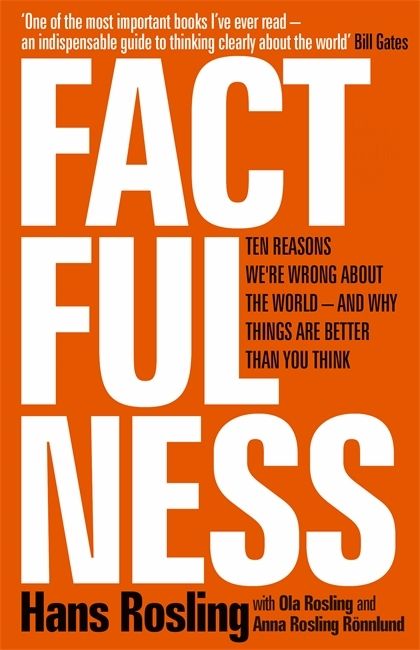
Finance
Economics
Money
Biography
The Big Short Book Summary
Michael Lewis
In "The Big Short," Michael Lewis tells the story of the contrarian investors who predicted the subprime mortgage crisis and made a fortune betting against the bubble, exposing the greed, delusion, and perverse incentives that nearly brought down the global financial system.
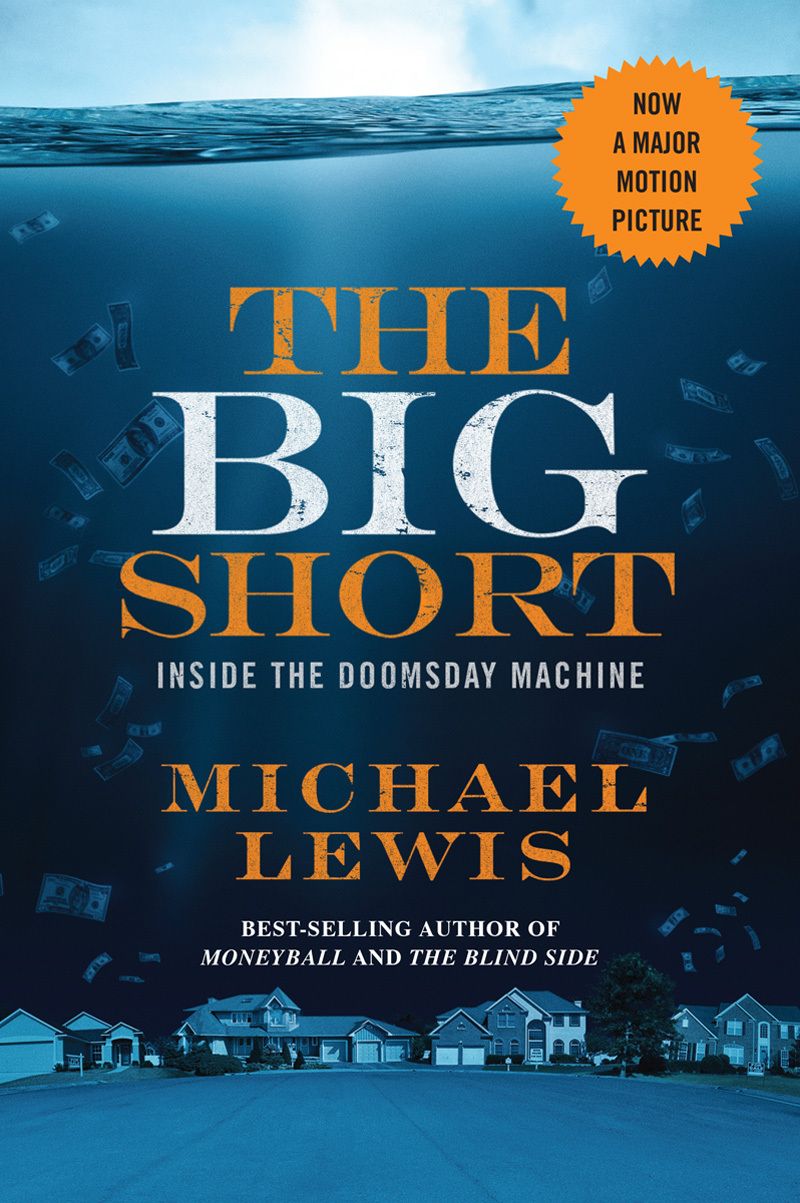
History
Economics
Politics
Globalization
Finance
Principles For Dealing With the Changing World Order Book Summary
Ray Dalio
Ray Dalio draws on historical patterns to provide a thought-provoking framework for understanding the cycles of rise and decline of nations, currencies, and markets, offering invaluable insights for investors and leaders navigating the complex dynamics shaping our future.
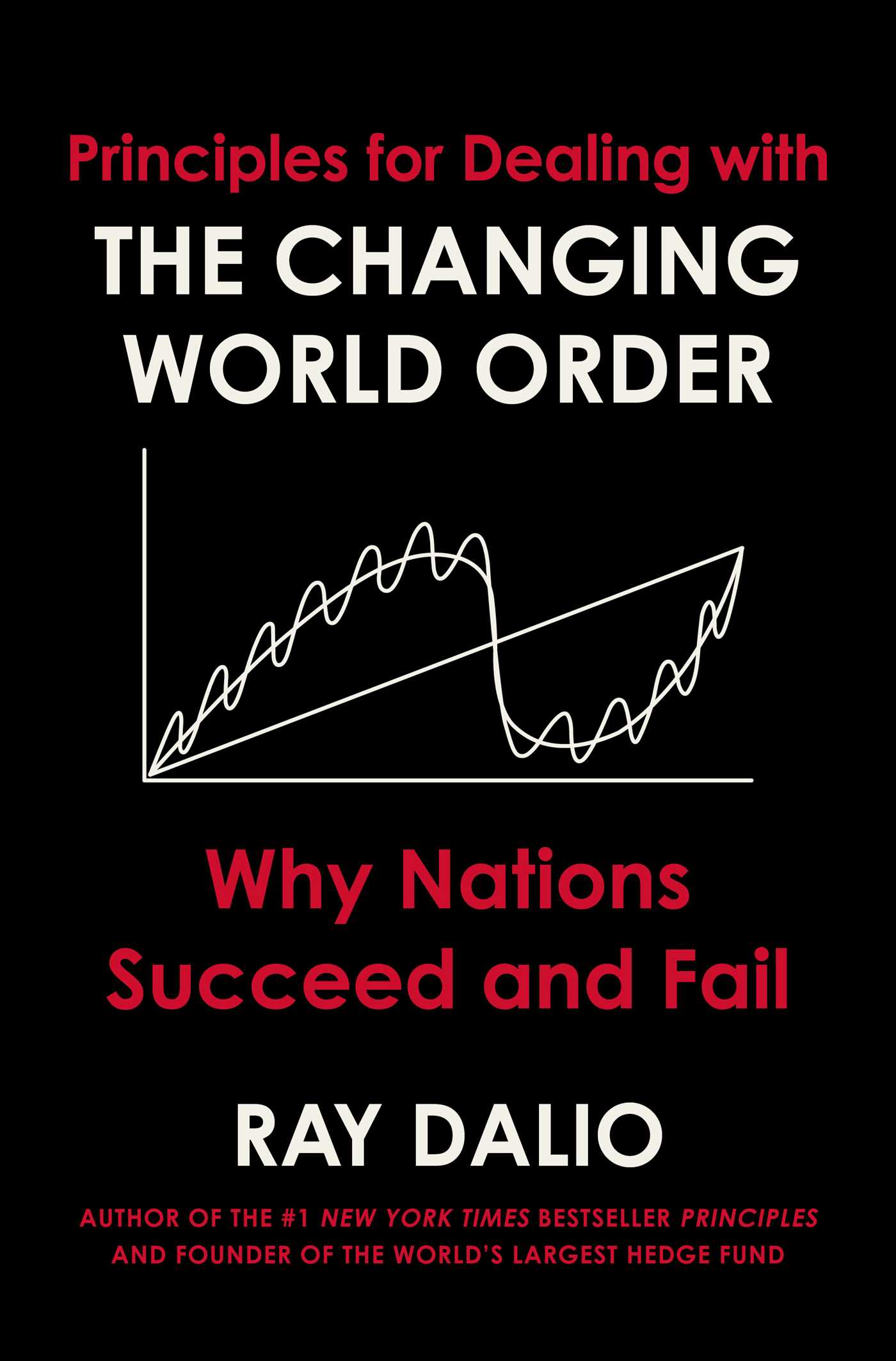
Misbehaving Book Summary
Richard Thaler
Richard Thaler chronicles the emergence of behavioral economics, challenging traditional economic assumptions about economics, and revolutionizing our understanding of decision-making. Thaler demonstrates the power of behavioral insights to improve people's lives while shedding light on the profoundly human factors that shape our choices.
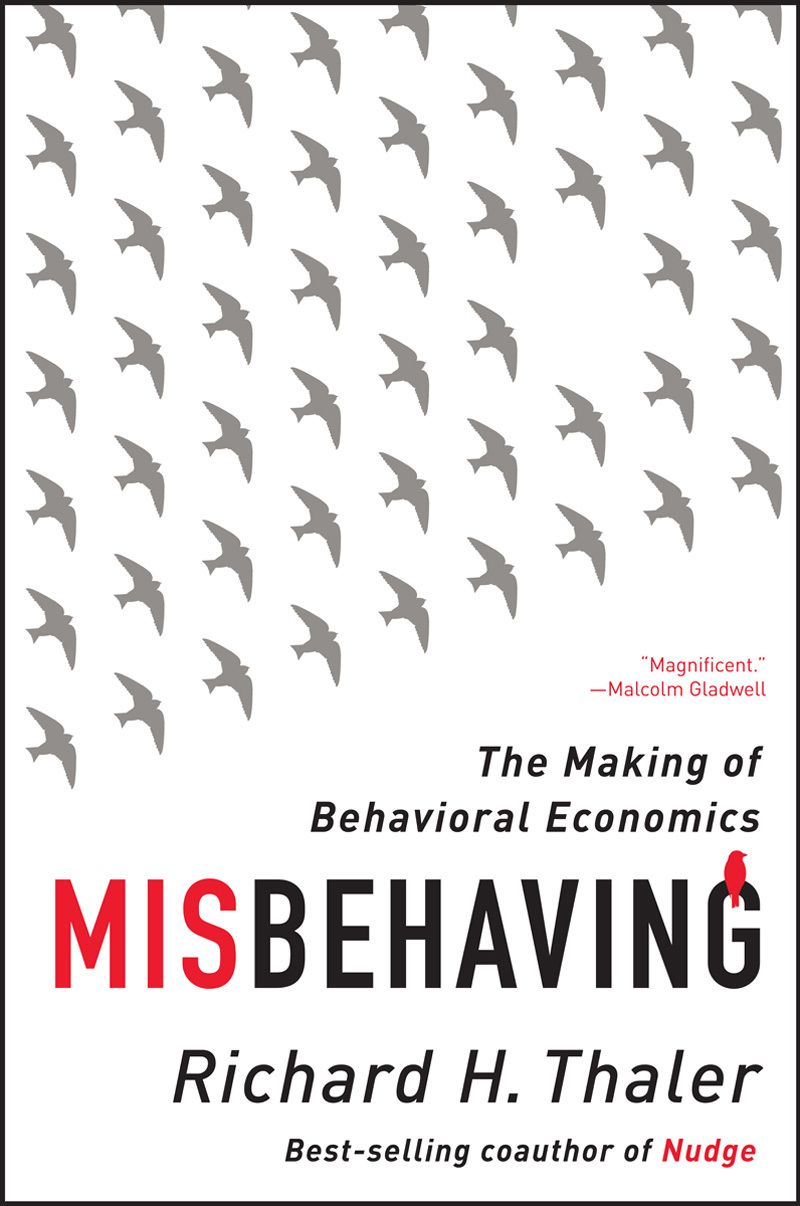
Psychology
Sociology
Economics
Incentives
Super Freakonomics Book Summary
Steven D. Levitt , Stephen J. Dubner
In Superfreakonomics, Levitt and Dubner challenge conventional wisdom on topics ranging from prostitution to terrorism to global warming, using data and economic principles to uncover surprising insights and challenge readers to think like a Freak.
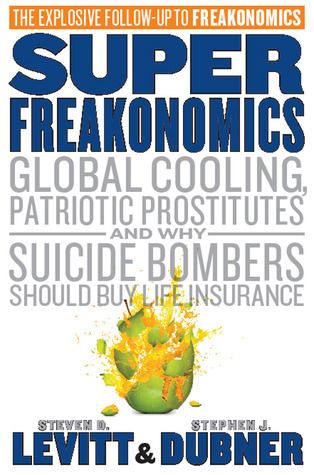
Psychology
Economics
Statistics
Heuristics
The Drunkard's Walk Book Summary
Leonard Mlodinow
"The Drunkard's Walk" reveals how randomness and chance play a far greater role in our lives than we typically realize, challenging our perceptions of success, decision-making, and the patterns we think we see in the world around us.
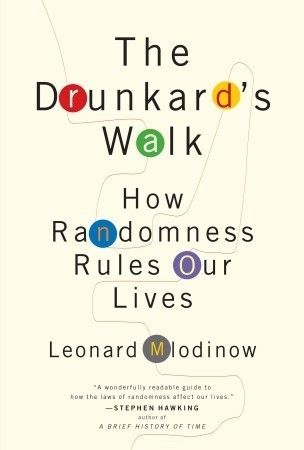
Politics
Economics
Society
Policy
Innovation
Abundance - Book Summary
Ezra Klein, Derek Thompson
Through compelling case studies in housing, energy, government, innovation, and technology deployment, Klein and Thompson argue that our most pressing challenges stem from chosen scarcities rather than natural limits. They outline a framework for building a future with more homes, cleaner energy, better governance, and breakthrough innovations that make life better for everyone.

Futurism
Artificial Intelligence
Technology
Computer Science
Power And Prediction Book Summary
Ajay Agrawal, Joshua Gans, Avi Goldfarb
"Power and Prediction" argues that the true potential of AI lies not in automating individual tasks, but in enabling the redesign of entire systems and decision-making processes, which will lead to significant shifts in economic and political power as AI evolves from a tool for prediction into a catalyst for transformation.
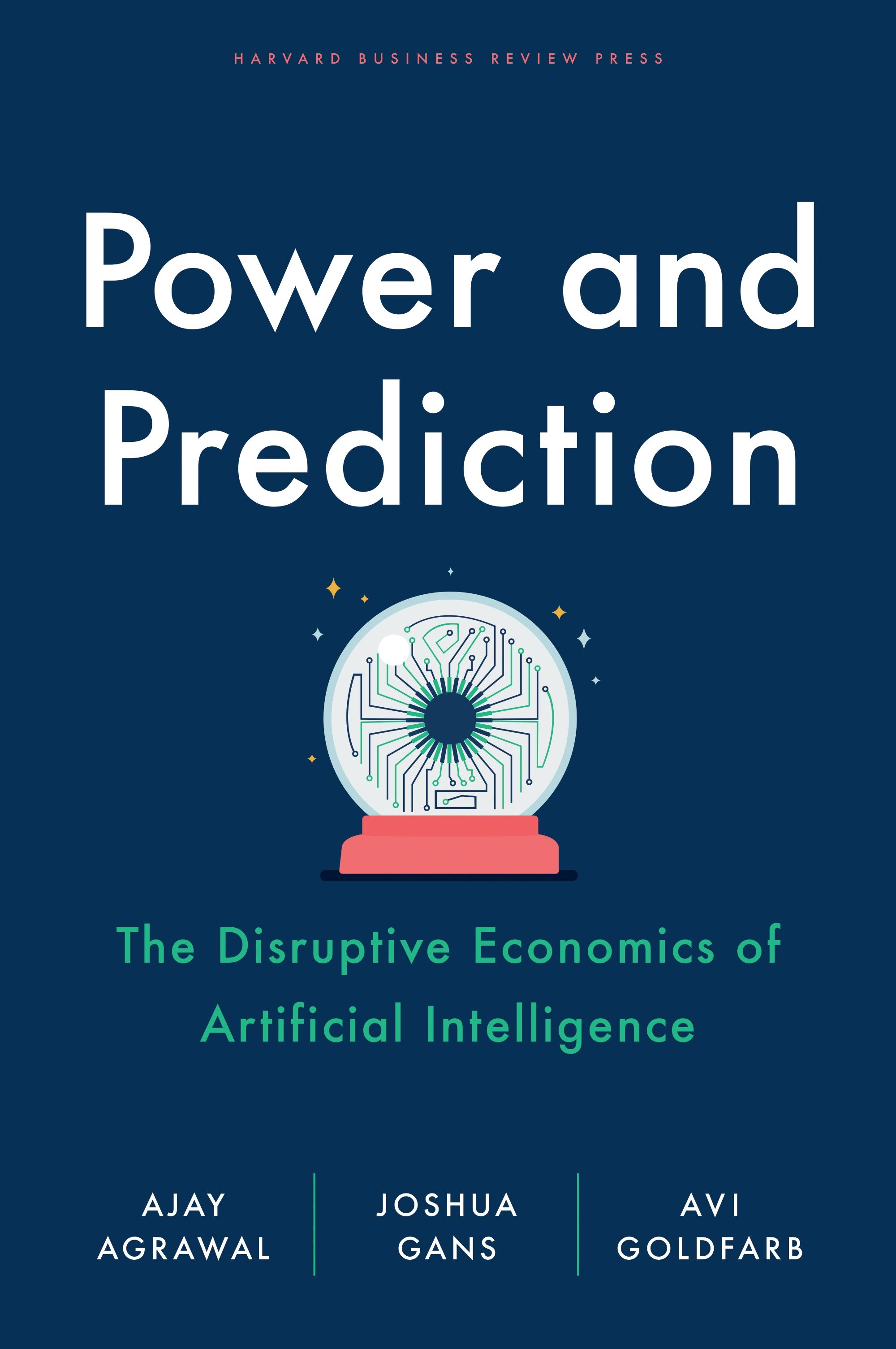
History
Society
Economics
Guns, Germs and Steel Book Summary
Jared Diamond
In Guns, Germs, and Steel, Jared Diamond argues that the fates of human societies across history have been shaped not by innate differences between peoples, but by environmental differences in the wild plant and animal species available for domestication on each continent.

Sustainability
Climate Change
Economics
Politics
This Changes Everything Book Summary
Naomi Klein
In "This Changes Everything," Naomi Klein argues that the climate crisis challenges us to abandon the core "free market" ideology of our time, restructure the global economy, and remake our political systems - and that in the process, we have the chance to create a safer and more just world.
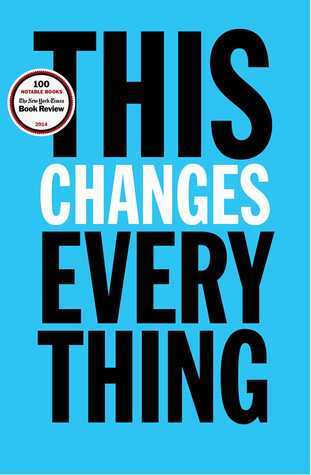
Psychology
Sociology
Economics
Freakonomics Book Summary
Steven D. Levitt, Stephen J. Dubner
Freakonomics is a rogue economist's exploration of the hidden side of everything, from cheating teachers and bizarre baby names to self-dealing realtors and crack-selling mama's boys, teaching you to question the world with data, dig deeper than conventional wisdom, and discern how people get what they want.
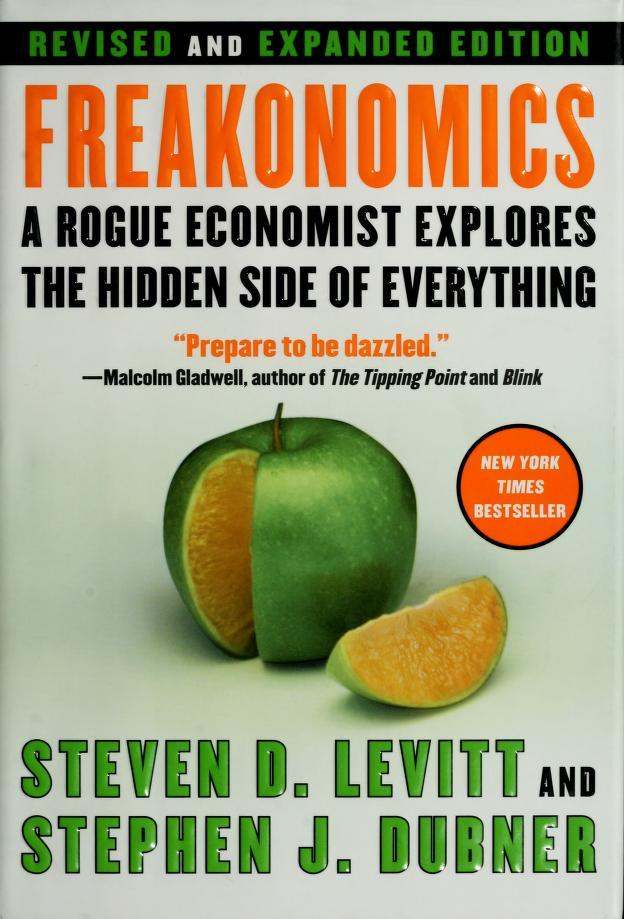
The Black Swan Book Summary
Nassim Nicholas Taleb
The Black Swan is about the extreme impact of rare and unpredictable outlier events, and how we tend to find simplistic explanations for them after the fact, making us blind to randomness and vulnerable to future Black Swans.
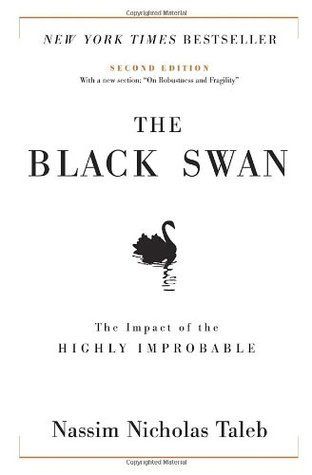
Prediction
Decision Making
Economics
The Signal and the Noise Book Summary
Nate Silver
In The Signal and the Noise, Nate Silver explores the art and science of prediction, explaining what separates good forecasters from bad ones and how we can all improve our understanding of an uncertain world.
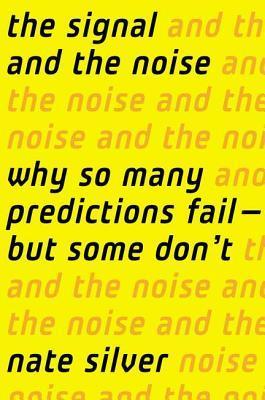
Economics
Decision Making
Prediction
Game Theory
On The Edge Book Summary
Nate Silver
"On the Edge" takes readers on a captivating journey through the high-stakes world of poker, sports betting, and risk-taking, revealing the counterintuitive strategies and mental habits that allow gamblers and daredevils to thrive in the face of daunting odds.
